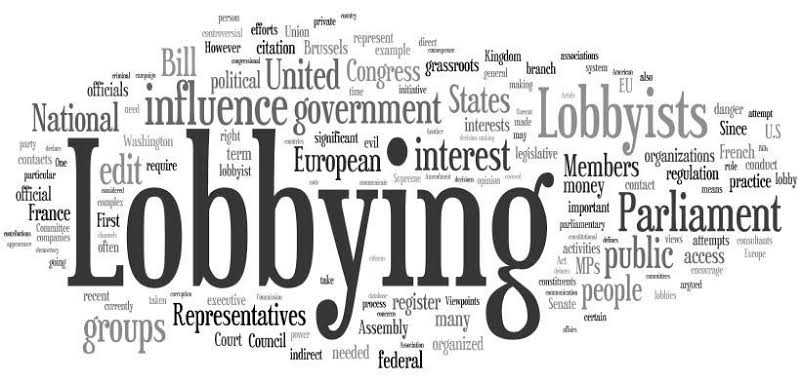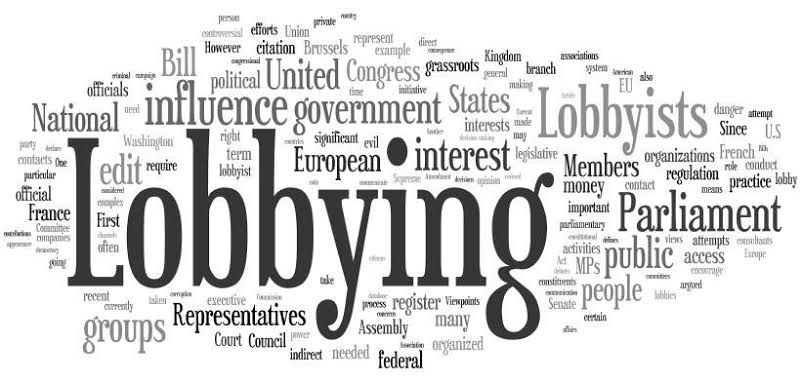Should Business Lobbying Be Made Legal in India?

Lobbying in India has long existed in the shadows, operating informally through consultants, intermediaries, and former officials who advocate for corporate interests without any public disclosure. This lack of transparency has contributed to the widespread perception that lobbying is merely a polite word for corruption or influence peddling. Yet, in many advanced democracies, lobbying is an accepted and regulated part of policymaking, recognised as a legitimate way for stakeholders to communicate their perspectives to lawmakers. As India’s economy grows more complex and its policies have a more far-reaching impact, the question of whether to legalise lobbying is becoming increasingly important.
At its most basic, lobbying is simply the process by which individuals or organisations try to influence public decisions in their favour. This can include providing technical information about industries, explaining the practical implications of proposed regulations, or highlighting unintended consequences of policy changes. In sectors such as pharmaceuticals, technology, infrastructure, and renewable energy, policymakers often do not have all the relevant knowledge to make informed decisions without input from those directly involved. This is why many countries have chosen to legalise and regulate lobbying rather than pretend it does not exist.
The United States, Canada, the United Kingdom, and the European Union all maintain formal lobbying registers and disclosure requirements. In the US, the Lobbying Disclosure Act requires professional lobbyists to file quarterly reports listing clients, issues of interest, and the money spent. In Canada, all lobbying activity must be recorded in an online public registry. The European Union maintains a Transparency Register to track interactions between lobbyists and EU institutions. These models demonstrate that lobbying can be made part of a healthy democratic process if there is clarity about who is trying to influence what, on whose behalf, and with what resources.
In India, by contrast, the absence of regulation has led to a system that is opaque and vulnerable to abuse. Because lobbying is neither defined nor legally recognised, there are no clear rules distinguishing it from bribery or illicit influence. This creates perverse incentives: instead of building arguments around evidence and public interest, businesses sometimes rely on personal networks or secret deals to secure favourable outcomes. Making lobbying legal and subject to disclosure would help move influence away from backchannels and into the daylight, where it can be scrutinised by citizens, journalists, and competitors alike.
Of course, legalising lobbying is not a panacea. There are serious challenges that must be addressed. Regulatory capacity in India is often stretched, and any new framework would require a credible, independent oversight mechanism capable of monitoring compliance. There is also the risk that large corporate interests could overwhelm smaller stakeholders, such as labour unions, farmers, and consumer advocacy groups, by outspending them and dominating access to policymakers. Additionally, public trust is fragile, given India’s history of high-profile corruption scandals, and any policy that appears to legitimise backdoor influence will attract scepticism.
However, the alternative—allowing lobbying to remain unregulated—simply perpetuates the current reality in which influence operates without accountability. Bringing lobbying under the law can set clear rules about who can lobby, how they can do it, and what they must disclose. Mandatory registration would require professional lobbyists and firms to record their clients, objectives, and expenditures. Public reporting would help citizens track which industries are seeking to shape which policies. Cooling-off periods for former ministers and bureaucrats could limit conflicts of interest. An enforceable code of conduct would make clear that gifts, inducements, and coercion are off-limits.
Importantly, legalisation would not mean unqualified acceptance of all lobbying activity. Just as companies must disclose financial statements, they should also be required to disclose efforts to influence laws. With the right framework, lobbying can be treated as a legitimate input in policy formulation rather than as a corrupt transaction.
India’s policymakers, industry associations, civil society, and citizens have an opportunity to debate this issue openly. Lobbying is already a fact of life in Indian governance. The question is whether it should remain hidden or be subjected to clear rules, ethical standards, and transparency. Done well, legalising lobbying could strengthen democratic accountability and reduce the suspicion that every policy is up for sale. It would also professionalise the process by which industries contribute their expertise to public debates. As India aspires to be a modern economic power with institutions that inspire confidence, bringing lobbying into the light is a reform whose time has come.
(Author is a bilingual journalist and commentator with a professional experience of four decades.)

 1 day, 1 hour ago
1 day, 1 hour ago





[[comment.comment_text]]